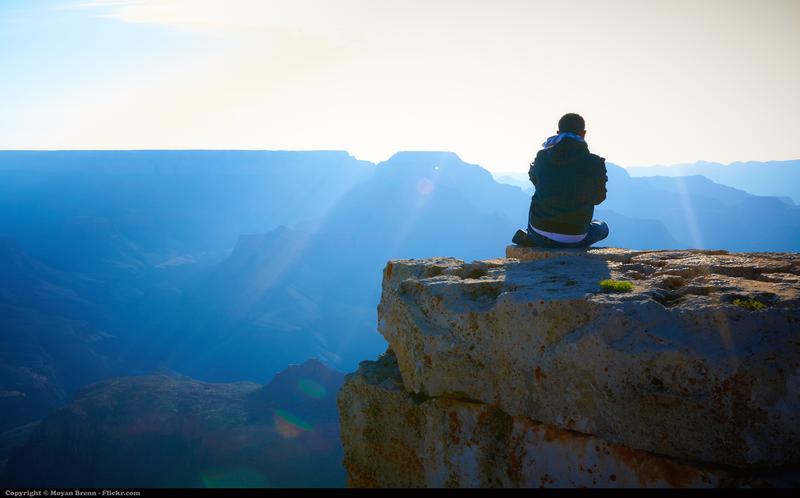[music]
Brian Lehrer: Brian Lehrer on WNYC. All this week, we've been taking a closer look at some of the tricky new health challenges that have come up during COVID living and offering some solutions. We picked five different pandemic self-care topics, one for each day this week, based on what we've been hearing from you and seeing around the web. Yesterday, we talked about nutrition. Today, meditation. Now, many of you already meditate, many of you do not, nobody thinks it's a bad thing. Let's talk about what meditation really is and its relevance to our pandemic lives to the extent that it is relevant. With us now is Regina Rocke, Ayurvedic wellness counselor, yoga teacher, and meditation instructor. Hi, Regina, welcome to WNYC. Thanks for coming on with us.
Regina Rocke: Hi, thank you. I'm excited.
Brian Lehrer: For the uninitiated, what's the difference between meditating and just sitting and thinking or just sitting and relaxing?
Regina Rocke: I love this question. I think the biggest distinction is with meditation, you're trying to clear your mind of thoughts, attachment of thoughts, attachment to feelings, people, scenarios, the past, the future, you're trying to achieve simply being in the present, again, without attachment to thoughts or past or future. Sitting and thinking that might be for creative purposes. Maybe to daydream, you're trying to access some creativity, you're a painter, a writer, or something like that. I think relaxing is that has a purpose that's meant for something. Often people maybe lie around, and relax, and watch TV, listen to a podcast, maybe they do some stretches. Yes, they're three separate things.
Brian Lehrer: Now, people hear about mindfulness meditation, transcendental meditation, other kinds, are there different meditation styles for people with different kinds of lives or different goals?
Regina Rocke: Definitely. My training is predominantly or primarily in Pranayama, breath control, awareness of breath. Especially in my Ayurvedic training, a huge, huge focus was being aware of your breath and how you breathe. We learned many techniques for calming your mind, calming your body, or even energizing. As you mentioned, there's Buddhist meditations, roots in Buddhist meditations, [unintelligible 00:02:54] meditations, transcendental meditation. Yes, I encourage people to do research because you'll find different things, different styles that work for you. That also helps people have a consistent practice that they'll stick with when it's something that they enjoy and look forward to.
Brian Lehrer: Well, how different are they? Can you give us a little example?
Regina Rocke: It's a little difficult because my training didn't go into a lot of the different styles. I would say that like I said, there's paying attention to your breath, being mindful of your breath, and then there's also styles where you count, you breathe in for a certain amount of counts, you exhale for a certain amount of counts, you count to 10, 1, 2, 3, 4, 5, 6, 7. Once you get to 10, then you count back down, 9,

